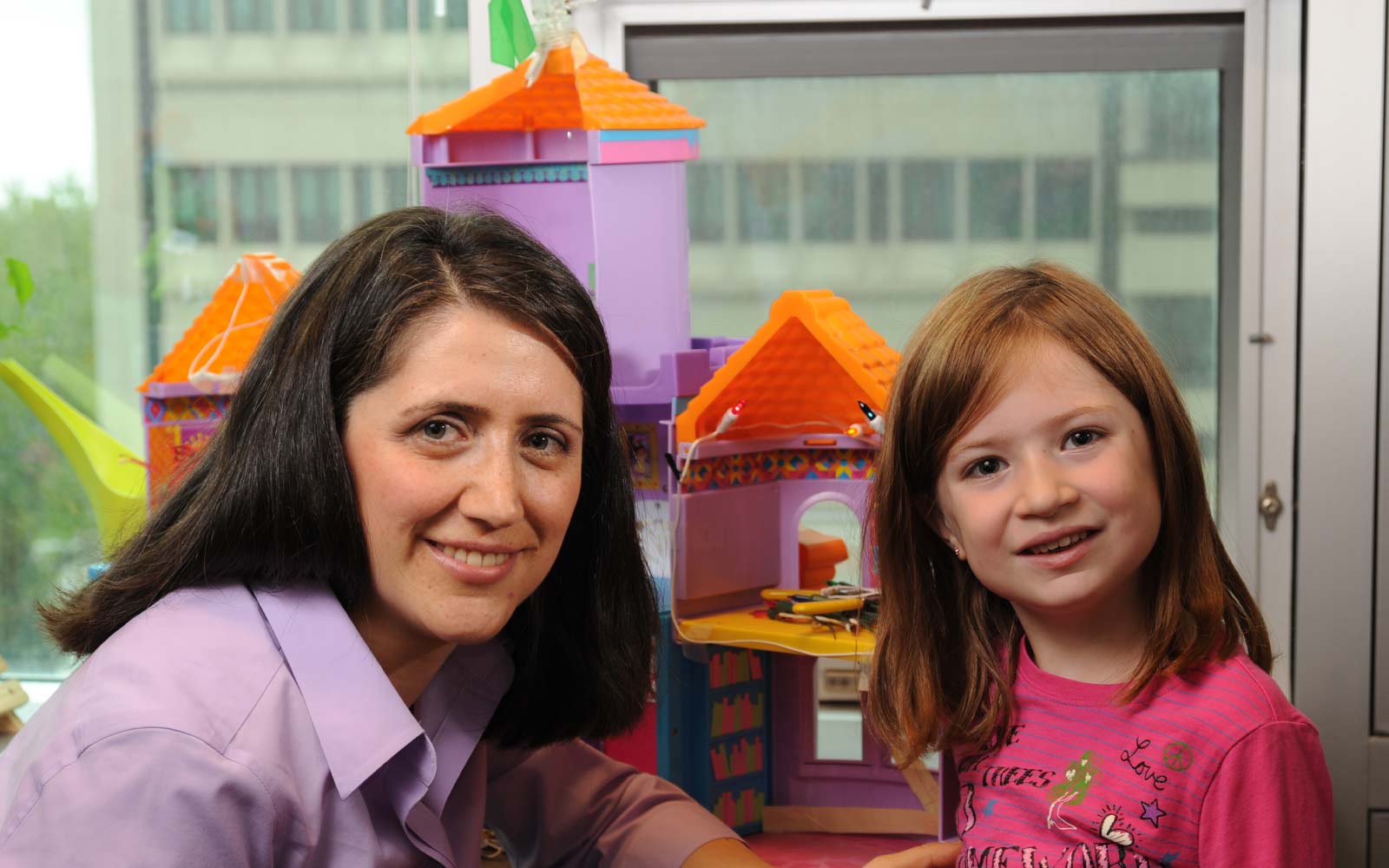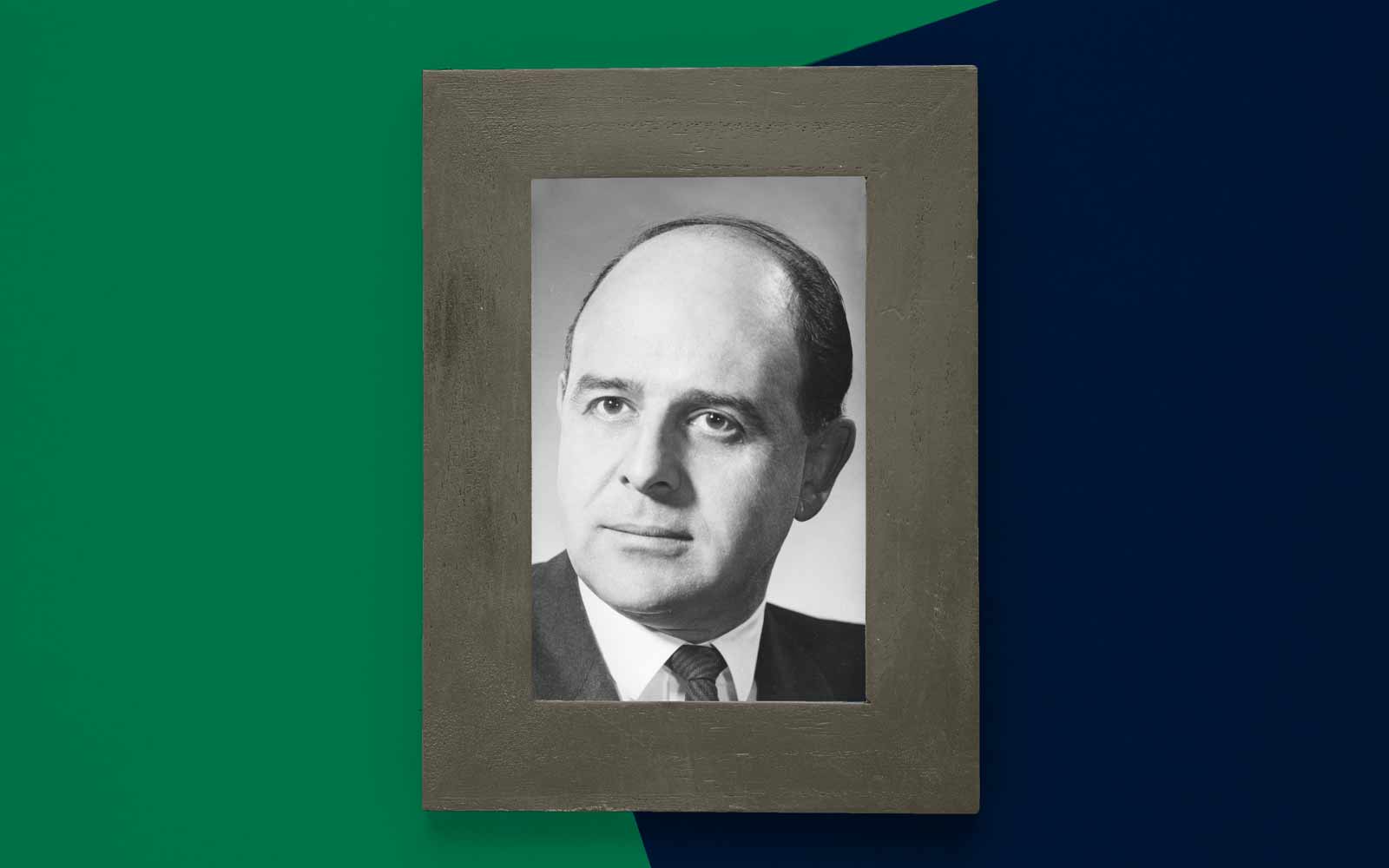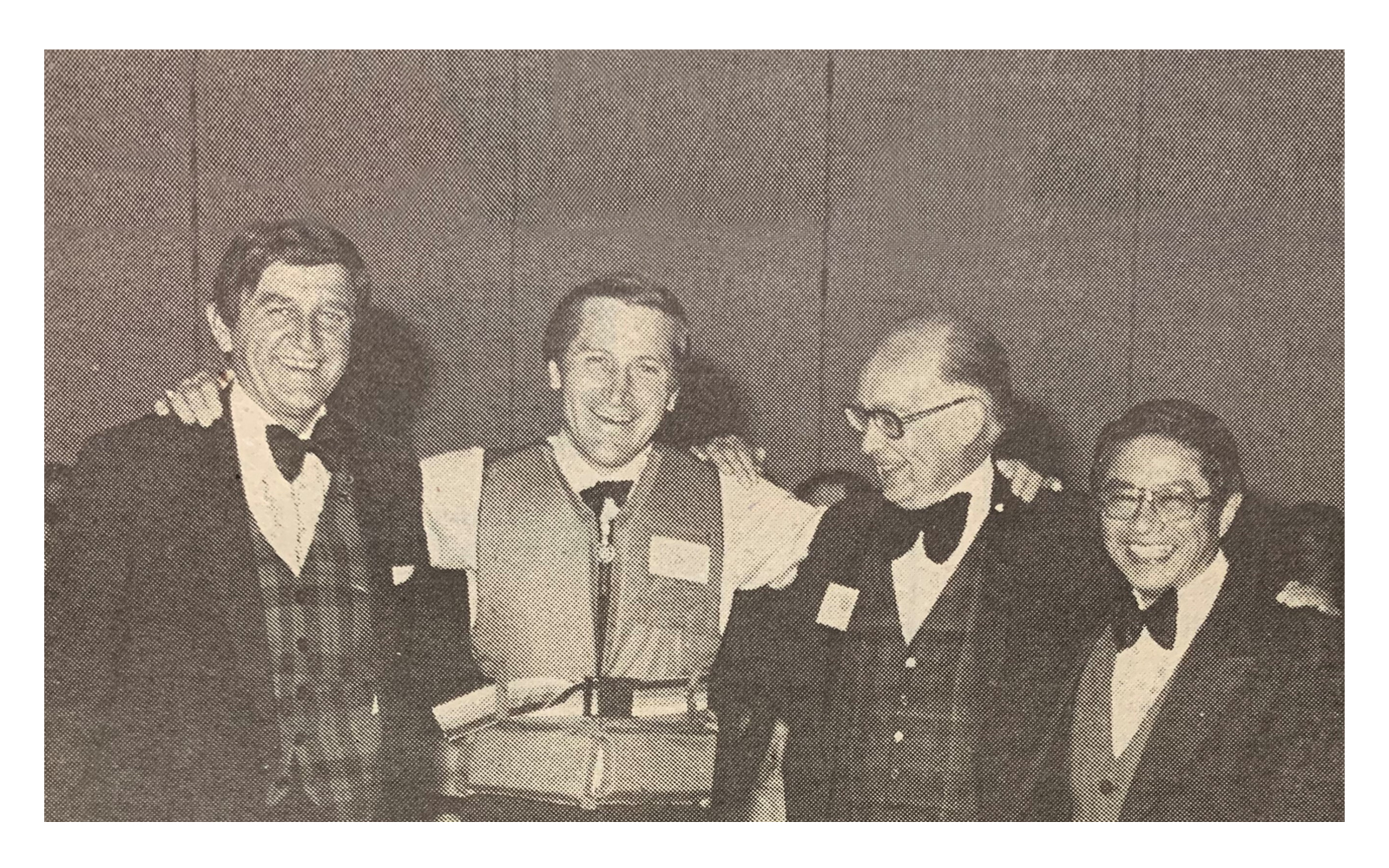Photo courtesy of Don Molyneaux
A Champion of Diversity: Laleh Behjat, P.Eng.
When her five-year-old daughter received a dollhouse for a birthday present, electrical and computer engineering professor Laleh Behjat, P.Eng., knew just what to do: she grabbed a string of Christmas lights and started teaching.
“The first thing we did was light up the dollhouse,” recalls Behjat with a laugh. “I taught my daughter about parallel and series circuits, and then we installed different sources of clean energy.”
Behjat, with the University of Calgary’s Schulich School of Engineering, is a passionate supporter of women in the fields of science, technology, engineering, and math—collectively known as STEM. She has spent much of her 20-year career advocating for increased diversity in STEM professions and has been involved in many initiatives that promote STEM careers to young women of all ages, from kindergarten to university and beyond.
Her dedication was recognized in 2015 when she received APEGA’s Women in Engineering and Geoscience Champion Summit Award in celebration of her efforts and achievements.
“Diversity in engineering and other STEM professions helps bring a variety of perspectives and voices to the table—not only women, but all other under-represented groups,” notes Behjat. “That’s important, because if we don’t have diversity, then all the things we build and create as professionals won’t reflect our whole population. By engaging people with different perspectives, it helps us find better solutions to the challenges we face as a society.”
Behjat receives her APEGA Summit Award from past-president Connie Parenteau, P.Eng.
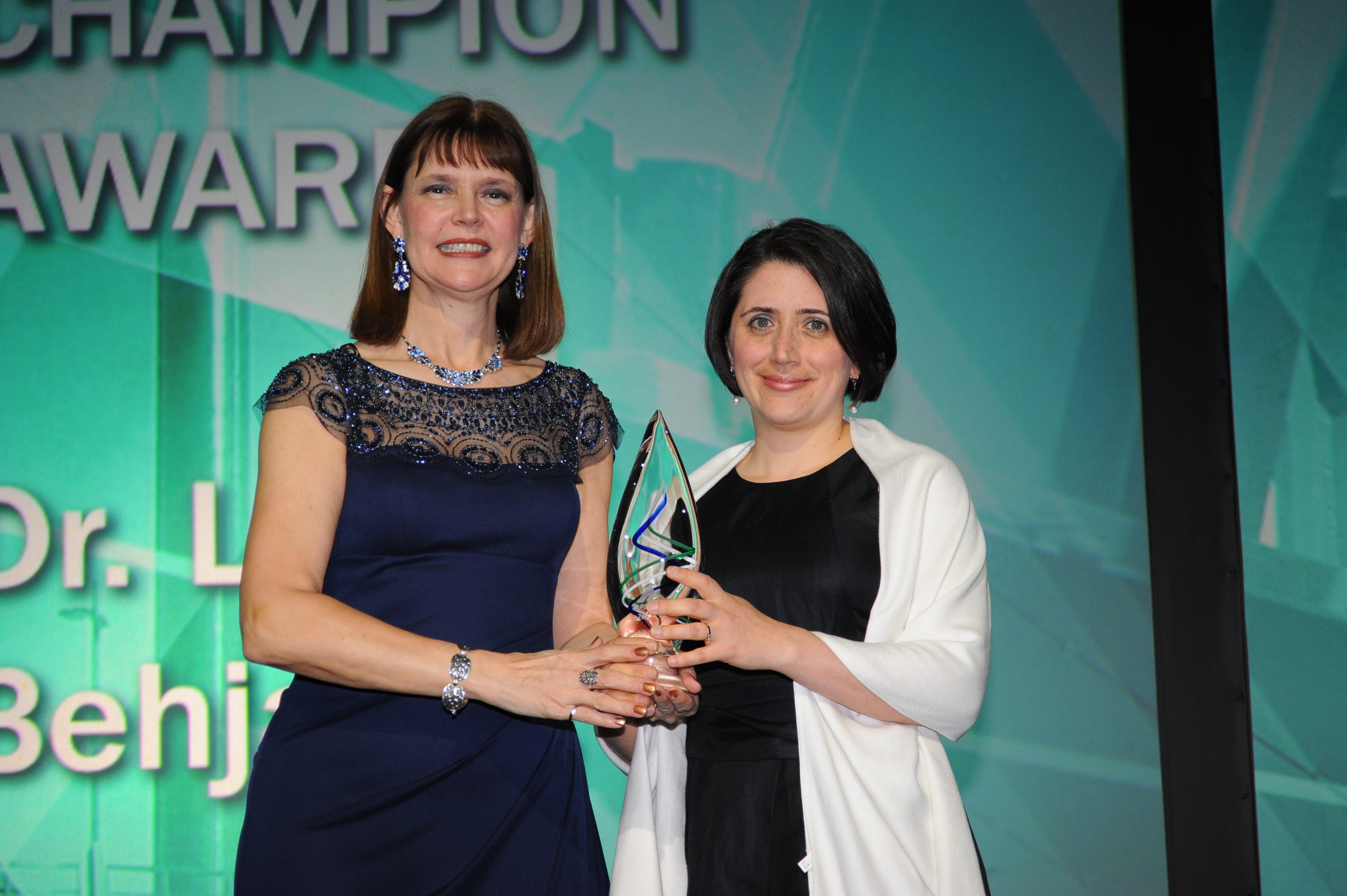
APEGA photo
As a young girl growing up in Iran, Behjat had many role models who encouraged her interest in math and science. “My mom and dad are both engineers and I also have several uncles and aunts in engineering,” she says.
She saw that engineers helped make a difference in people’s lives. They designed houses that could withstand earthquakes. They built transportation systems, so children could go to school. They ensured people had access to clean water.
“Wherever engineers were working, quality of life was so much better,” she explains.
In 1997, after earning a bachelor of science degree at the Tehran University, Behjat immigrated to Canada to pursue a master’s and PhD in electrical engineering at the University of Waterloo in Ontario. She headed west in 2002 to join the faculty at Schulich’s Department of Electrical and Computer Engineering.
As an accomplished university researcher, she designs faster and more power-efficient computer circuits. As a professor, she guides undergraduate and graduate students, empowering them to explore—and cultivate—new ideas.
“It’s very rewarding to get students excited not only about what they’re studying, but thinking about how they can make a positive impact in the world,” says Behjat.
As a champion of diversity, Behjat is making her own impact.
Through math and science outreach at elementary schools, she has helped girls envision a future in engineering. She’s taught coding to high school students. She organizes annual trips for university students to the Grace Hopper Celebration of Women in Computing conference. She helped start a leadership program for women graduate students, giving them the skills to succeed in an industry dominated by men.
Behjat (back row, centre) organizes annual trips for U of C women engineering students to attend the Grace Hopper Celebration of Women in Computing conference.
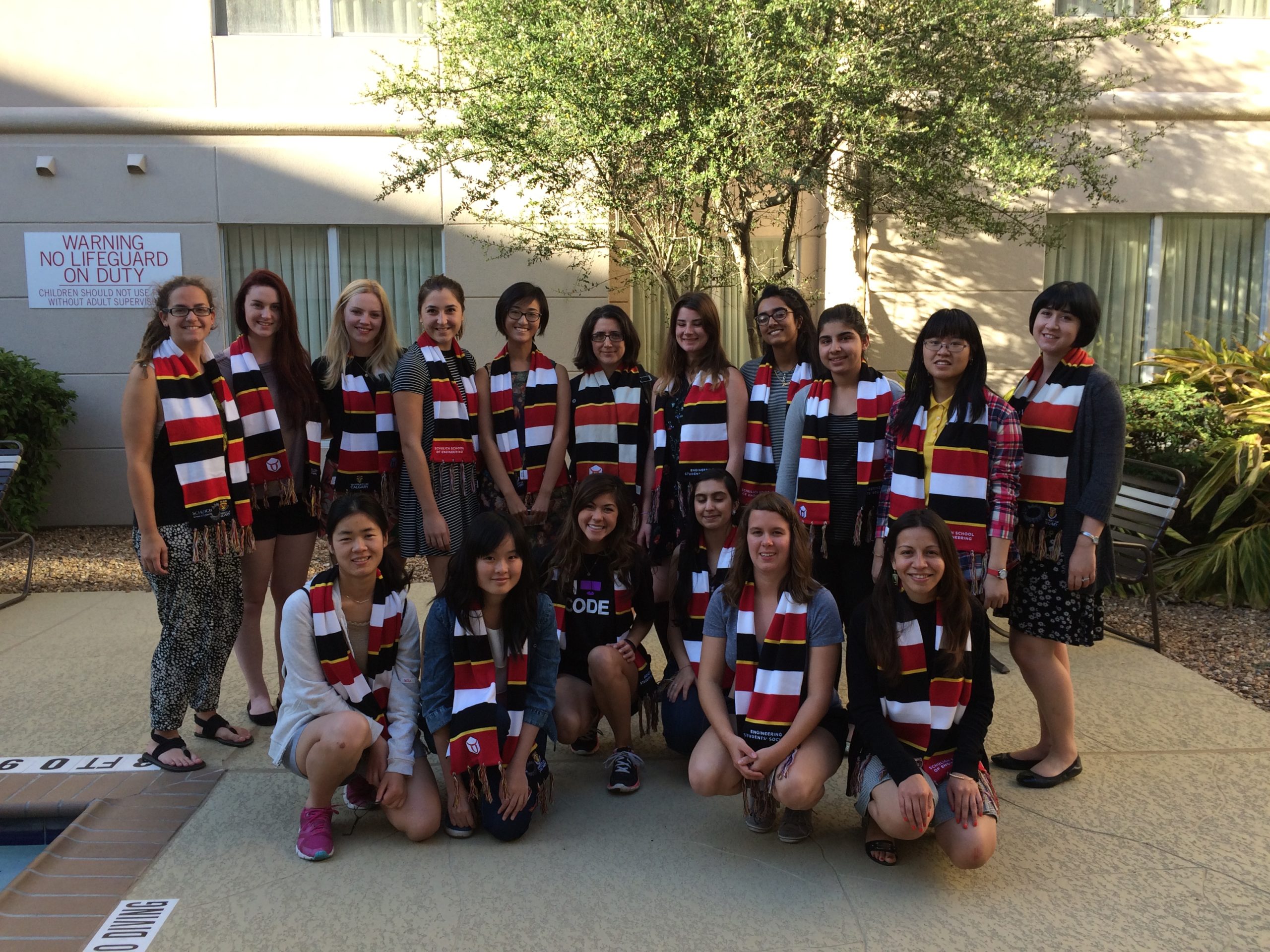
Photo courtesy of Robyn Paul
At the professional level, she’s organized workshops and panels, has served as a member of Women in APEGA, and was chair of the Women in Engineering Affinity Group for the Institute of Electrical and Electronics Engineers Southern Alberta section. She’s also the former chair of the Schulich Gender and Diversity in Engineering Committee and has planned and participated in the university’s Women in Engineering Day, which brings high school students to campus to see what engineering is all about.
Though there’s still more work to do to make engineering and geoscience more inclusive, Behjat is optimistic change will come.
“One hundred years ago, people were debating if women should have the right to vote. Today, we’ve reached a point where that’s not an issue in most countries,” she says. “In another 100 years, I would hope discussions around diversity will be something we simply read about in the history books.”
Laleh Behjat, P.Eng., a professor at the University of Calgary’s Schulich School of Engineering, designs faster and more power-efficient computer circuits.
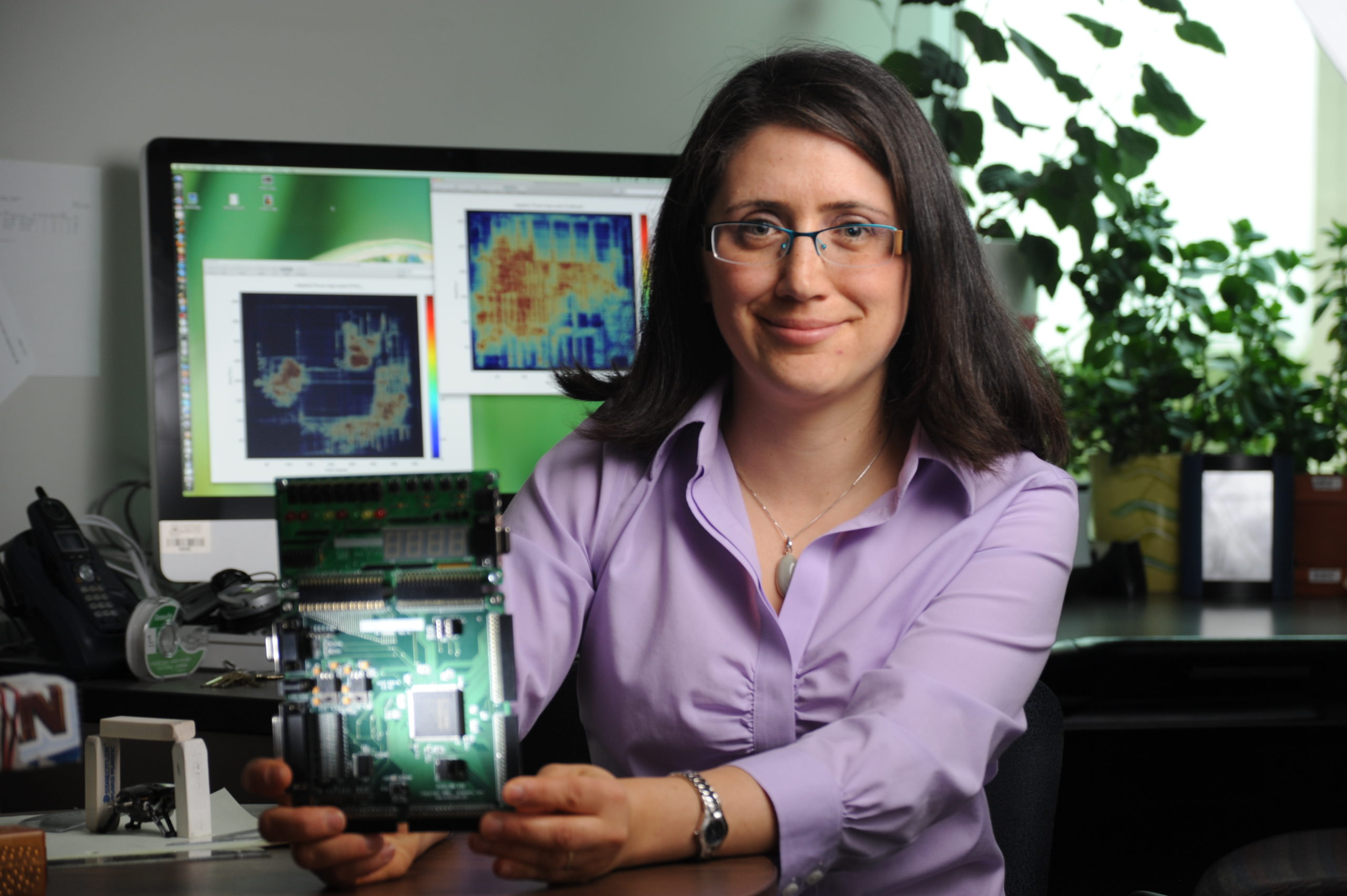
Photo courtesy of Don Molyneaux
